Summary: Tent City was bulldozed, scattering its residents again. But we found them. During a rain-soaked outreach, our volunteers stood their ground, soaked to the bone but unwilling to walk away.
Read Time: Approximately 7 minutes.
“They were happy to get two cans of corn.”
That’s what one of our first-time volunteers said about a family living at the Cadillac Motel. They had waited patiently in line, inching forward toward the table where we had stacked canned food. Dozens of people stood there with them, lined up before we even arrived. And for that family, that extra can meant something, which wouldn’t have happened if someone like you had not cared enough to give it.
Someone else had quietly prepared breakfast—just one person, working in love before the sun was up. We had loaves of bread, cookies, and bus passes. Even suitcases, which always go fast among the transient. That’s what this life requires: mobility. You carry what you can.
I was discussing this with my wife, how the longer you stay in outreach, the easier it is to grow numb. To miss those moments. It takes someone new, someone uncalloused, to remind you of what’s actually happening. And the opposite is true, too. I’ll look at a photo of the inside of a room at the Cadillac Motel and feel nothing. It doesn’t shock me anymore. But it should. Three hundred dollars a week. For that.
What I do still feel… is rain.
Later that afternoon, as we pulled up to Tent City, the sky opened up with a menacing downpour. No umbrellas. No shelter. Within minutes, we were soaked straight through—socks to skin. But nobody left. The volunteers just stood there. I don’t get it. Why are they doing this? The residents who live there seem to have enough sense to get out of the rain. And then the reality sinks in that, unfortunately, I was the one in charge—the one who had to decide whether we should pack it all up or keep going.
I don’t like being in charge. Never have. It’s best for me to work under the assumption that the outreach belongs to God. Sometimes it feels less like a calling and more like a pair of handcuffs—blessed ones maybe, but binding just the same. Because once you say yes to this kind of work, you don’t get to disappear. You don’t get to pretend you didn’t see it.
So, I figured if they were willing to stand out in the rain and love on people, that I should just let them be.
Some of these folks have been serving with us for months. For others, it was their first time—and maybe their last. The wet cardboard boxes didn’t hold much, but the people did. I watched one young man, brand new to outreach, stand there in the rain as if it weren’t even happening. He didn’t flinch. He wasn’t looking for cover. He was just locked in the present.
And then came the heat. The kind of heat that feels like a hairdryer on low, aimed right at your face. My wife had talked me into wearing shorts, which I knew would be a bad idea, standing in the tall grass at Tent City. By the end of the day, my legs were covered in insect bites—a reminder that I don’t sleep outside. But others do. Every night.
That’s why the insect repellent mattered. A tiny church in town had quietly been collecting cans of it for weeks. It added up. And on this visit, we brought it down to Tent City. It’s a big deal to them. But it was all short-lived.
A few nights later, Kim and I started receiving messages from a long-time Tent City resident. Law enforcement had reportedly come by and told them they had a week to vacate. At first, we didn’t think much of it—it had happened before, back in March, and thankfully, nothing came of it then.
The following morning, I had another message from a different resident expressing the same concern. As the day progressed, we received additional information that led us to obtain an incident report from the Owensboro Police Department. It’s reasonably clear from the documentation that the same two law enforcement officers revisited and issued the same ultimatum. This time, however, a specific landowner is mentioned. But not as the complainant. The incident type is listed as “Assist Other Agency”. This felt different.
So, I contacted the people currently using the land. While they acknowledged having been approached by law enforcement about their intentions, they expressed their desire to maintain the good relationship they have with the community. And reiterated that they had not instigated the complaint. The person I spoke with—who I suspect was a publicist—claimed they didn’t own the property. That wasn’t exactly true. But that’s not the point.
We visited Tent City and found that most of the transients had already left. Those who remained were the long-timers, each carrying a different emotion. Some seemed oblivious, going about their routines as if nothing had changed. Yet even they admitted they knew they’d been asked to leave.
One of them is a man I’ve gotten to know—and grown to trust—over the years. It wasn’t that long ago that I came down here and went fishing with him. My wife and I sat with him outside his home and talked for a while. He’s deeply depressed about what’s coming.
Just a few days later, the very spot where we sat looked like it had been scraped from the earth. It’s pretty evident that only the homes were targeted, and other belongings remained. The indentation of the tire tracks into the soil and the small broken tree branches were reasonable indications that something big could come through. Three of them remained and had been told that there was no room in the truck for their home, but that they would return the next day and remove what was remaining.
There’s one person’s home that was only accessible by climbing stairs that had been dug into the embankment. There’s a heading rope tied to the top, and pull yourself up with it. Once up at the campsite, it’s pretty clear to see that it has been pilfered. Among the unwanted items are a tethered Bible, clothes, and a welcome sign.
I still wonder if we had something to do with it. Maybe we brought too much attention to Tent City. On the surface, it looked like advocacy—but in the quiet, I question my own motives. Did I make those videos to raise awareness… or to be seen raising awareness? Was some part of me hoping to be caught in the act of doing the right thing, so I’d look, if only for a moment, redeemable?
Since then, we’ve managed to stay in touch with a few of the residents. Last night, I got a message from the man I went fishing with—the one who asked me to “just come back with nothing.” Today, we met up again, along with many of the others who had been displaced.
Their new camp is a patchwork of tents and scrap wood, tucked away out of sight. It’s raw. Temporary. Transient. One man is sleeping face down on the dirt. Everyone needs tarps, duct tape, dry socks—everything. But still… the mood is strangely hopeful. Laughter. Stories. Somehow, they’re in good spirits, despite everything.
One woman—older, barefoot, with mobility issues—had been wearing the same outfit for who knows how long. She emerged from her tent slowly. I hadn’t even seen her until she spoke.
“I heard your voice,” she said. “And I had to come out.”
That one stopped me. For days, I’d been dragging chains of guilt and second-guessing. But something about that statement dropped them. For the first time in a while, it felt good to be here again. Not to be seen. Not to be right. Just to show up.
And yeah—it’s crazy. We keep showing up with (as one of the residents described it) “a caravan” of provisioning, knowing full well they’ll be swept away by rain, wind, fire, or bulldozers. We hand out things we know won’t last. Over and over again.
I know it doesn’t make much sense. God doesn’t “need” us to do anything. He is the Almighty. But he wants to use us, I believe. He puts it on people’s hearts to deliver what’s needed to our shop. And He puts it on our hearts to distribute it. Sometimes, obedience is the only answer given.
And if you don’t believe, that’s okay. Just know I can’t give up on them. And I am thankful for those who join us who feel the same way.
All of the real names used here were with permission. Otherwise, the names have been changed. To protect the identity of those photographed, they have been blurred intentionally unless consent was given before publishing.
The Safer Kentucky Act, which went into effect on July 15, 2024, makes sleeping or camping in public areas illegal, including on sidewalks, roadsides, under bridges, or in parks, parking lots, garages, or doorways. The law creates a new offense called “unlawful camping” that can result in arrest and fines. Assisting those individuals is considered to be aiding and abetting, which is a legal doctrine that refers to the act of helping or encouraging someone to commit a crime. The person who aids and abets is generally held to the same degree of criminal liability as the person who commits the crime. We ask that you please not attempt to locate or visit Tent City.

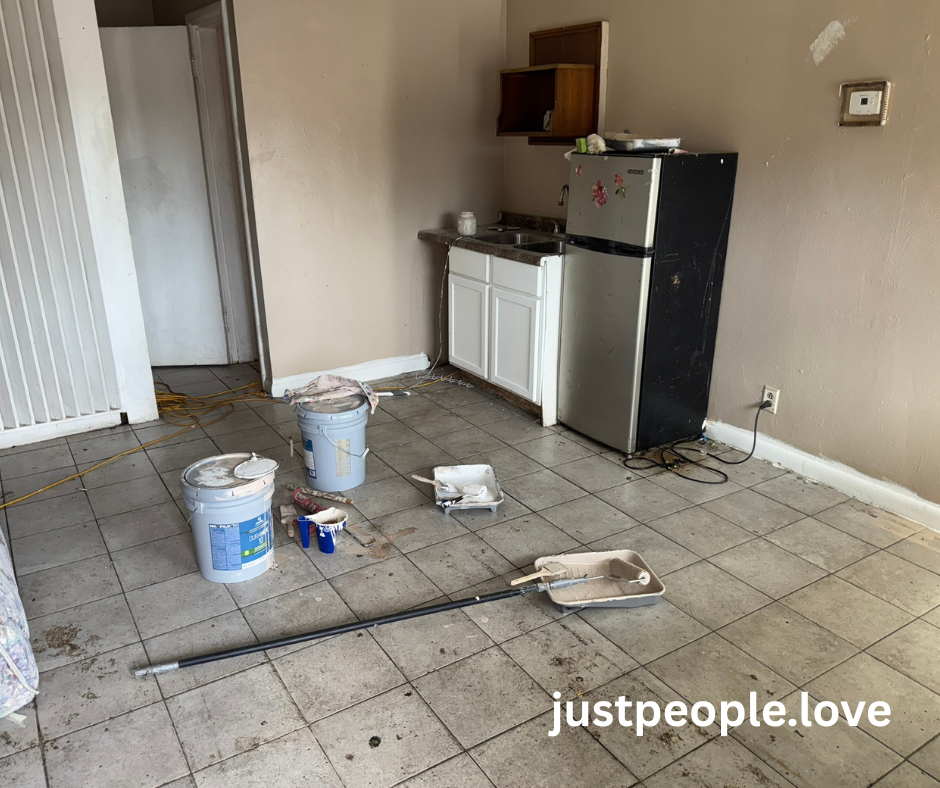
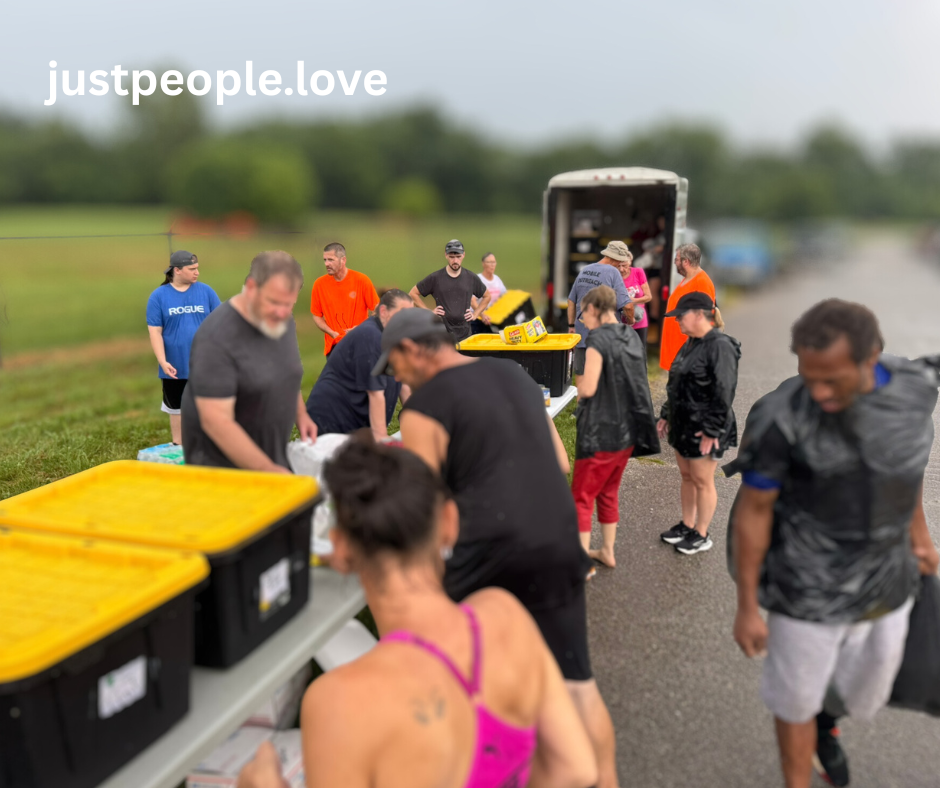
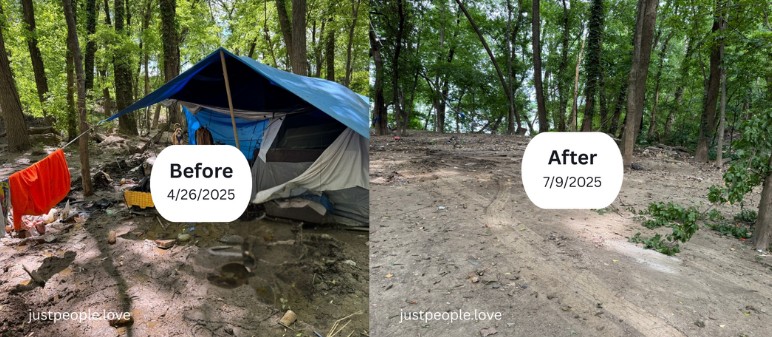
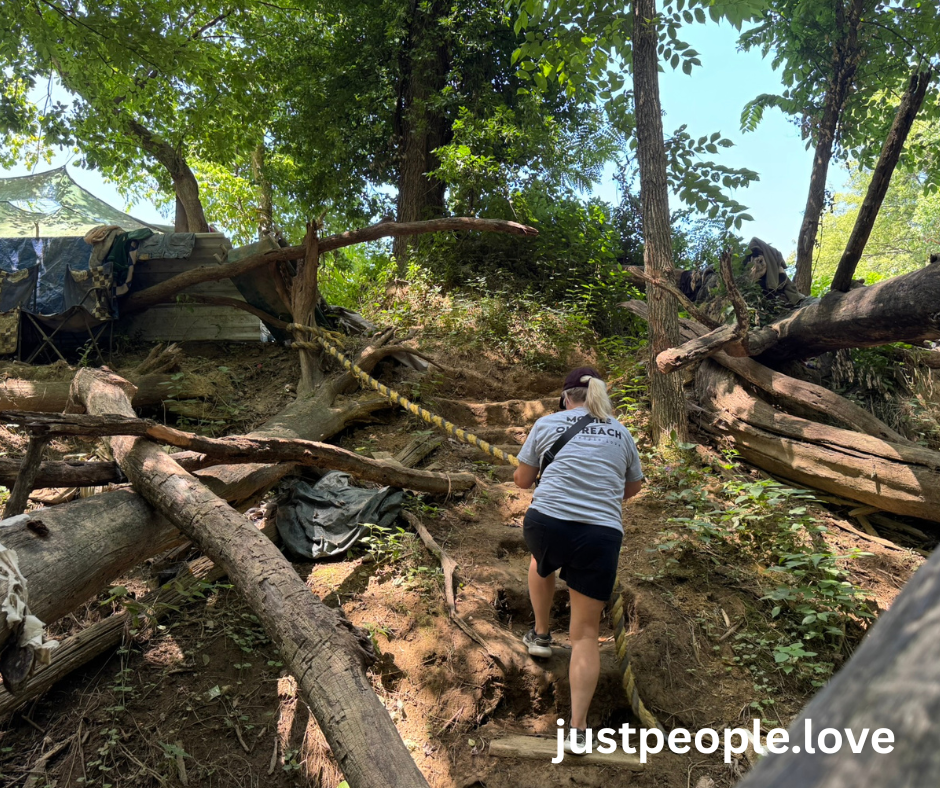
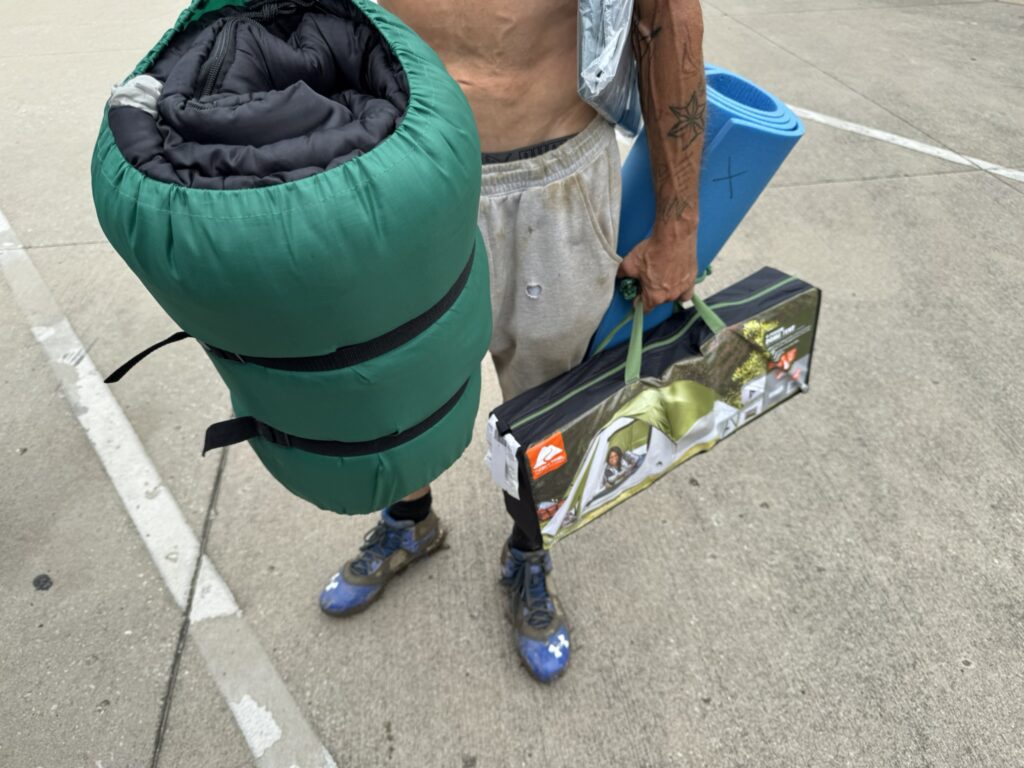
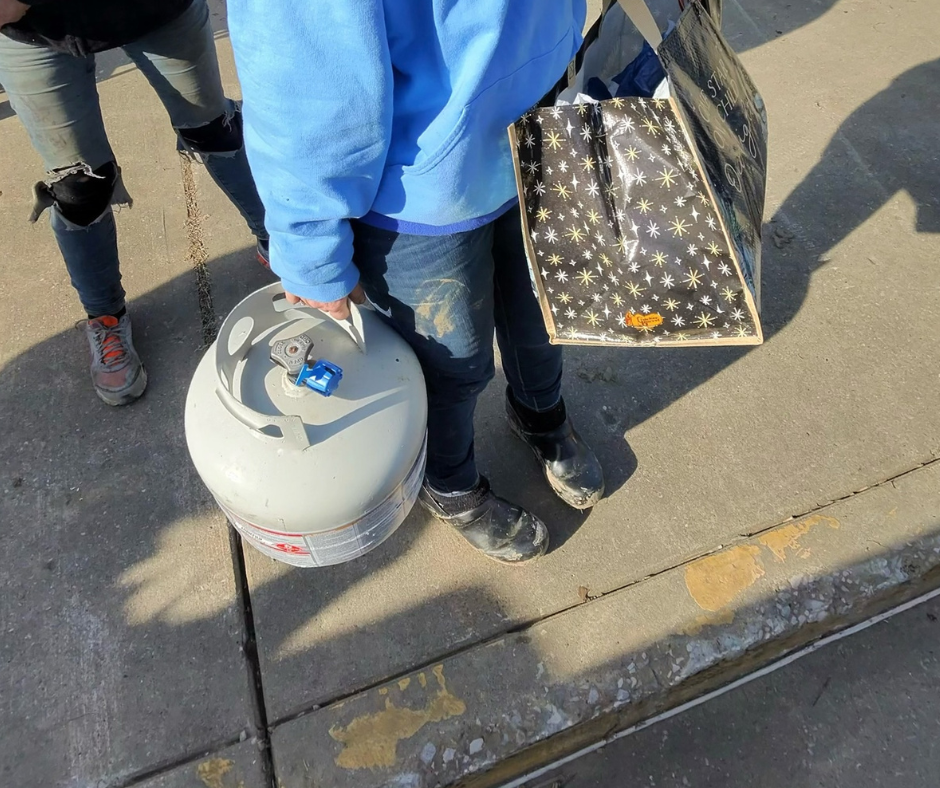
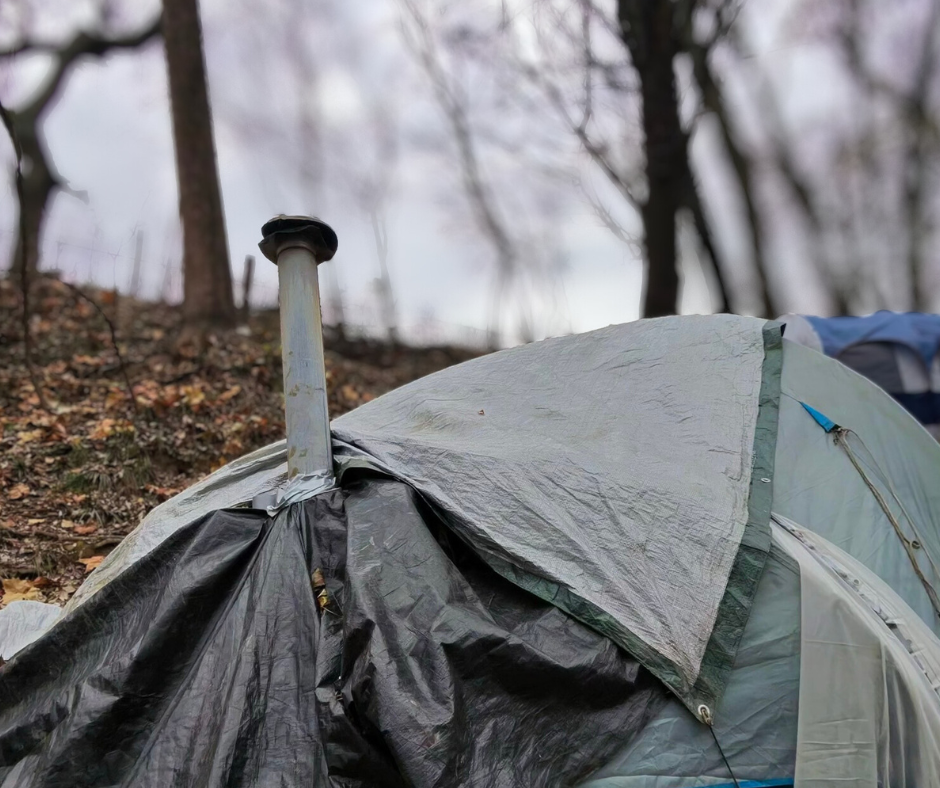
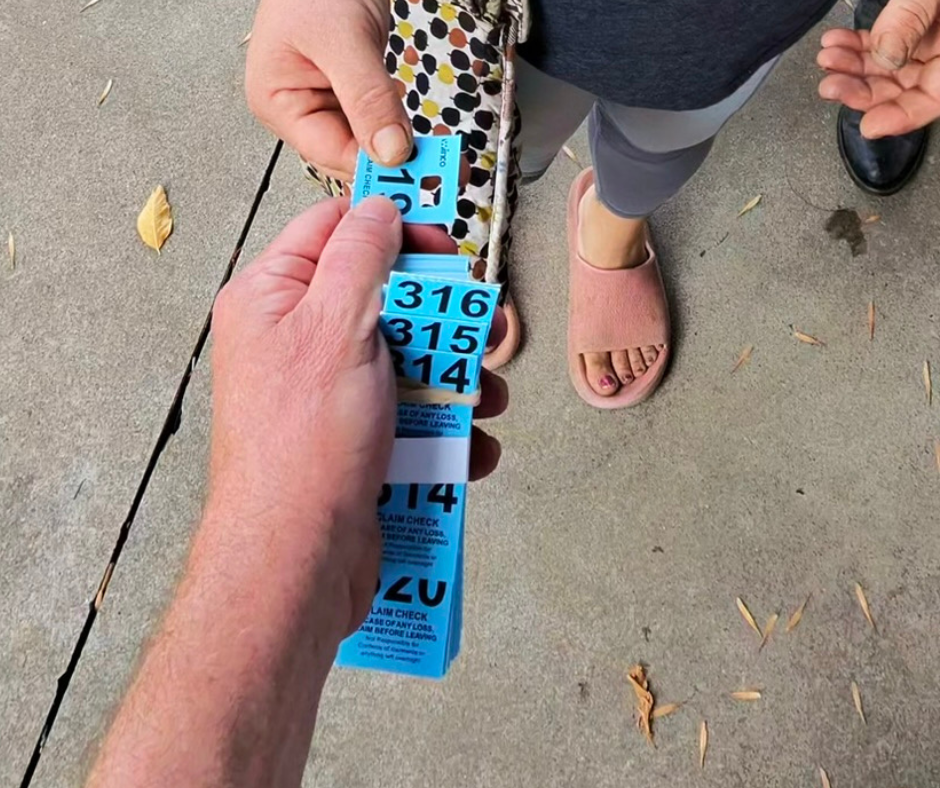
0 Comments